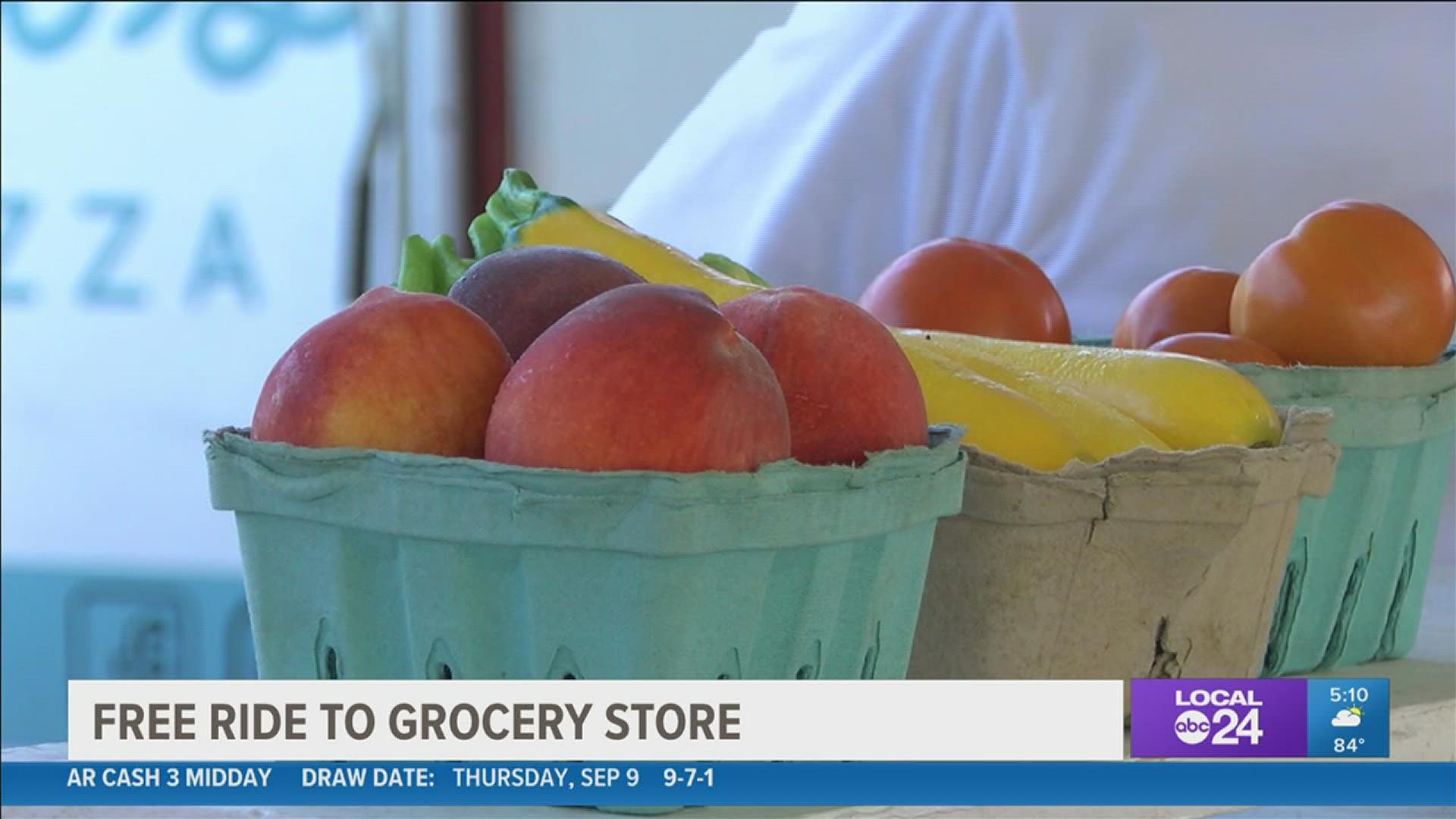MEMPHIS, Tenn. — A new program is helping people who live in a north Memphis food desert. It not only gives people a free ride to the grocery store, but thanks to an anonymous donor, riders are now getting free cash to go shopping.
Whole Child Strategies is a nonprofit organization working to address issues and improve outcomes when it comes to students living in improvised areas.
"I've lived right here for 12 years," said Vivian Bolden.
Bolden has lived in the Klondike and Smokey City area for more than a decade. Bolden said she is doing what she can to help improve it. The area has lost population and there is a high amount of poverty. She is called a neighborhood champion.
"What we are really trying to do is we are trying to better the neighborhood. We are working towards the betterment of the neighborhood - improvement of the neighborhood," said Bolden.
Bolden knows first hand the area is a food desert with no grocery store for miles. Many residents don't have transportation. However a new partnership with Whole Child Strategies and MATA takes people twice a week to get food.
Residents in the Klondike and Smokey City neighborhoods get picked up from designated areas get driven to fresh food. Saturdays, they are taken to the farmers market and Tuesday residents are taken to Catholic Charities, where they can get a box of food and then driven to Cash Saver to go shopping.
"The farmers market is such a big event. All the neighbors enjoy going there because they can not only get fresh vegetables and fruit, but they can get meat items and other things," said Bolden.
"Giving those families access to healthy foods on a weekly basis is paramount to make sure those children and doing well and those families are doing well," said Natalie McKinney, Whole Child Strategies Executive Director.
McKinney said since the program began this summer, about 200 riders have taken advantage of the program. In addition to the ride, riders also get $15 dollars to spend on food thanks to an anonymous donor.
"It’s about reallocating resources to actually meet the needs of the people. And the only way you can do that is if you talk to the people who are impacted by it and you ask them what do you need," said McKinney.
McKinney said the bus trip idea came about after meeting with stakeholders in the community, and trying to figure out how to address residents' needs.
"We cannot think one size fits all works because it doesn’t. Every neighborhood has a different history, has a different way it interacts and we have to be responsive to that," said McKinney.
As for Bolden, now that the food route is running, she has other transportation ideas for the future.
"Maybe we can come up with some kind of plan to have a pick up spot, to where we can get people that have to go to certain places to certain places - get them to work and to home," said Bolden.

